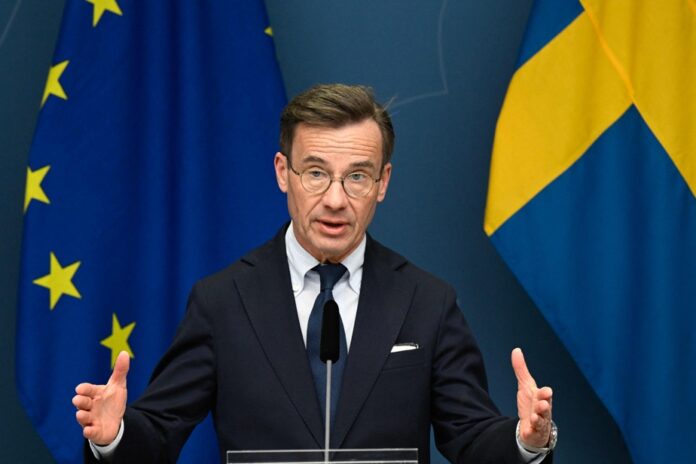(Stockholm) Sweden’s prime minister acknowledged on Tuesday that the likelihood of Finland joining NATO before Sweden has increased, particularly in the face of Turkey’s objections to Stockholm.
“The likelihood of this happening at different rates has increased,” Conservative Prime Minister Ulf Kristersson said at a press conference.
“It is clear that over the past few weeks the Turkish side have made it known that they are ready for Finland, but not for Sweden,” he said.
Candidates for a year, a direct consequence of the invasion of Ukraine by Russia, Sweden and Finland both still hope to become members of the Atlantic Alliance before its next summit in Vilnius in July.
The way is largely clear for Helsinki, while Turkey still has a veto for Stockholm, despite the resumption of talks last week in Brussels.
“Turkey still doesn’t think we’ve come all the way and that was made clear during the meeting, while this dissatisfaction was not expressed for Finland,” Swedish negotiator Oscar Stenström explained. .
The Secretary General of NATO, Jens Stoltenberg, had for the first time mentioned, in mid-February, the possibility of membership in two stages.
The parliaments of the 30 current members of the alliance must all ratify the accession of Sweden and Finland, long neutral then non-aligned.
Only Turkey and Hungary have yet to give the green light and Ankara has publicly raised the possibility of separate ratifications for the two countries, only giving its agreement for Finland.
Turkey notably accuses Stockholm of passivity in the face of Kurdish “terrorists” who live in Sweden, demanding dozens of extraditions on which the government does not have the last word.
Following diplomatic incidents caused in January by the burning of a Koran in the Swedish capital by an extremist, negotiations had been suspended for several weeks.
After multiple postponements, the Hungarian parliament began to consider the matter in early March and NATO hopes for a “soon” decision.
The vote, which was due to take place no earlier than March 20, will not take place next week, the parliamentary group of Fidesz, the ruling party, told AFP on Tuesday.
He invoked “the delay in negotiations with Brussels” to release the billions of euros in funds frozen pending reforms to better fight corruption.
One of the concerns on the Swedish side is that Hungary is using membership of the Atlantic Alliance as a bargaining chip in its battle with the European Union.
Hungarian nationalist Prime Minister Viktor Orban also cultivates a closeness with Russia and Turkey.
On the Turkish side, Stockholm hopes that the path to NATO will open up for it after the May 14 elections in Turkey.
The opposition is fielding a united candidate against incumbent President Recep Tayyip Erdogan, who has been in power for 20 years.


















